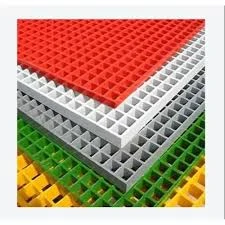loading...
- No. 9, Xingyuan South Street, Dongwaihuan Road, Zaoqiang County, Hengshui, Hebei, China
- admin@zjcomposites.com
- +86 15097380338
- Welcome to visit our website!
Durable and Lightweight Fiberglass Water Storage Solutions for Various Applications
The Versatility and Advantages of Fiberglass Water Containers
Fiberglass water containers have revolutionized the way we store and manage water in various applications, ranging from residential uses to industrial needs. Made from a composite material comprising glass fibers and resin, these containers offer a multitude of benefits that traditional materials simply cannot match. In this article, we will explore the versatile applications, benefits, and some considerations when it comes to using fiberglass for water storage.
What are Fiberglass Water Containers?
Fiberglass water containers are specially designed tanks or vessels constructed from fiberglass-reinforced plastic. This material is known for its strength, durability, and resistance to a variety of environmental factors. As a composite, fiberglass combines the lightness of plastic with the toughness of glass fibers, leading to containers that can withstand pressure, temperature changes, and various chemicals. This makes them ideal for the storage of potable water, chemicals, and other liquids.
Applications
The applications of fiberglass water containers are vast. In residential settings, they are commonly used as water tanks for rainwater harvesting systems, irrigation, and backup water supplies. Their lightweight nature makes them easy to install and relocate if necessary.
In agricultural settings, fiberglass tanks are crucial for storing water for livestock, irrigation, and pesticide applications. The durability of fiberglass ensures that these containers can handle the rigors of outdoor conditions without degrading.
Industrial applications include chemical storage, wastewater treatment, and the transportation of hazardous materials. The ability of fiberglass containers to resist corrosion and impact makes them a preferred choice for industries dealing with challenging liquids.
Benefits of Fiberglass Water Containers
1. Durability and Longevity One of the primary advantages of fiberglass is its incredible durability. Unlike metal containers that can rust or corrode over time, fiberglass water containers are resistant to the elements. They do not suffer from structural failure due to rust or decay, ensuring a long service life.
2. Lightweight and Portable Fiberglass is significantly lighter than many other materials, such as steel or concrete. This makes fiberglass containers easier to handle, transport, and install, reducing labor costs and time.
fiberglass water container

3. Customizable Fiberglass can be molded into various shapes and sizes, offering flexibility to meet specific storage requirements. Whether you need a small tank for home use or a large agricultural setup, fiberglass containers can be tailored accordingly.
4. Insulation Fiberglass offers good thermal insulation properties, which helps to maintain the temperature of the stored water. This is particularly beneficial for applications where temperature fluctuations can affect water quality.
5. Environmentally Friendly Many fiberglass containers are designed to be environmentally friendly, as they can be produced using recycled materials. Their durability also means fewer replacements over time, resulting in less waste.
Considerations
While fiberglass water containers are highly advantageous, there are a few considerations to keep in mind
- Cost The initial investment in fiberglass containers may be higher compared to traditional materials. However, considering their longevity and lower maintenance costs, they can be more economical in the long run.
- Installation Proper installation is crucial to ensure that the containers function effectively. Engaging professionals for installation can help mitigate issues related to structural support and placement.
- Chemical Compatibility While fiberglass is generally resistant to many chemicals, it is essential to ensure that the specific type of resin used in the containers is compatible with the liquids being stored to avoid any degradation.
Conclusion
Fiberglass water containers offer a robust solution for various water storage needs, combining durability, versatility, and efficiency. Their applications are plentiful, whether in residential, agricultural, or industrial settings. As water management and environmental concerns become increasingly critical, the role of fiberglass tanks will only continue to grow. Investing in fiberglass water containers may initially seem like a higher cost, but their long-term benefits present a practical and sustainable option for storing and managing water effectively.
-
GRP Structures: The Future of Lightweight, High-Performance EngineeringNewsJun.20,2025
-
FRP Water Tank: High-Performance Storage for Corrosive and Clean Water SystemsNewsJun.20,2025
-
FRP Square Tube: The New Industry Standard for Chemical and Structural ApplicationsNewsJun.20,2025
-
FRP Pultruded Profiles: The Ultimate Choice for Lightweight Structural StrengthNewsJun.20,2025
-
FRP Handrails: The Safer, Smarter, and Stronger Choice for Modern InfrastructureNewsJun.20,2025
-
FRP Grating: The Smart Solution for Durable, Lightweight Industrial FlooringNewsJun.20,2025
-
Why Choose a Galvanized Water Tank for Your Storage NeedsNewsMay.21,2025
